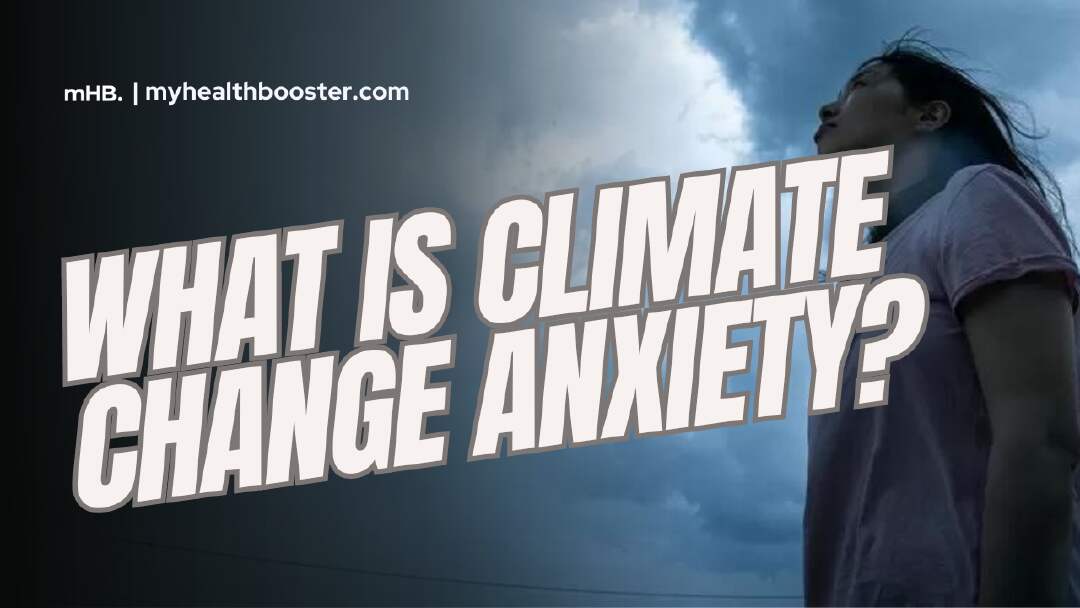In recent years, a new psychological phenomenon has emerged, casting a shadow on mental health discussions globally: Climate Change Anxiety. As our planet undergoes unprecedented transformations, the profound impacts of climate change extend beyond physical landscapes, seeping into the collective psyche. In this comprehensive guide, we will delve into the nuances of climate change anxiety, exploring its causes, symptoms, and avenues for coping.
Climate Change Anxiety: What is it?
Climate change anxiety, often referred to as eco-anxiety or climate anxiety, is a visceral response to the impending and observable effects of climate change. It goes beyond a rational concern for the environment, evolving into a persistent worry, fear, or even dread about the future state of our planet. Individuals grappling with climate change anxiety often find it challenging to reconcile the magnitude of environmental challenges with a sense of personal agency.
Can Climate Change Cause Anxiety?
Absolutely. The accelerating pace of climate change, marked by rising temperatures, extreme weather events, and ecological imbalances, has profound psychological implications. The tangible and anticipated impacts, such as sea-level rise, biodiversity loss, and disruptions in weather patterns, contribute to a pervasive sense of existential threat. This, in turn, triggers anxiety, affecting mental well-being on an individual and collective level.
What is Climate Change Anxiety Called?
Climate change anxiety is often interchangeably referred to as eco-anxiety or ecological grief. These terms encapsulate the emotional responses and mental health challenges associated with the ecological crisis.
Do You Experience Climate Anxiety?
Considering the global nature of climate change, it’s increasingly common for individuals to experience some level of climate-related distress. The realization of the interconnectedness of environmental issues can lead to feelings of helplessness, guilt, or despair. Identifying these emotions is crucial for initiating proactive steps toward mental well-being.
Climate Change Anxiety Symptoms:
- Constant Worry: Persistent preoccupation with the impacts of climate change on the planet and future generations.
- Fear and Dread: Overwhelming fear about the severity of environmental challenges and their potential consequences.
- Hopelessness: A sense of powerlessness and hopelessness in the face of the enormity of climate-related problems.
- Physical Symptoms: Anxiety related to climate change can manifest physically, including headaches, insomnia, and digestive issues.
- Eco-guilt: Feeling personally responsible for environmental issues, leading to guilt and self-blame.
How Can I Help Climate Change Anxiety?
- Education and Awareness: Understanding the science behind climate change fosters a sense of empowerment and effective coping.
- Community Engagement: Joining local or online environmental groups provides a support network and avenues for collective action.
- Mindfulness Practices: Incorporating mindfulness and stress-reducing techniques helps manage anxiety.
- Limiting Information Consumption: While staying informed is crucial, constant exposure to distressing news can contribute to anxiety. Set boundaries for media consumption.
- Taking Action: Channeling concern into tangible actions, such as sustainable living and advocating for environmental policies, fosters a sense of efficacy.
In conclusion, climate change anxiety is a complex interplay of environmental concerns and mental health. Acknowledging its existence, understanding its roots, and implementing coping strategies are pivotal steps toward fostering resilience in the face of a changing world. By fostering a sense of agency, individuals can contribute not only to the well-being of the planet but also to the preservation of their mental health amidst the challenges of our times.
